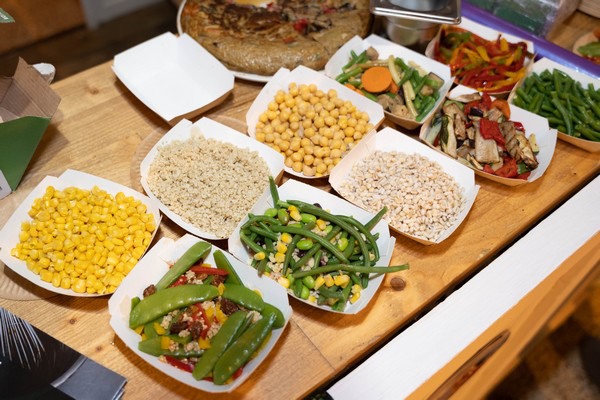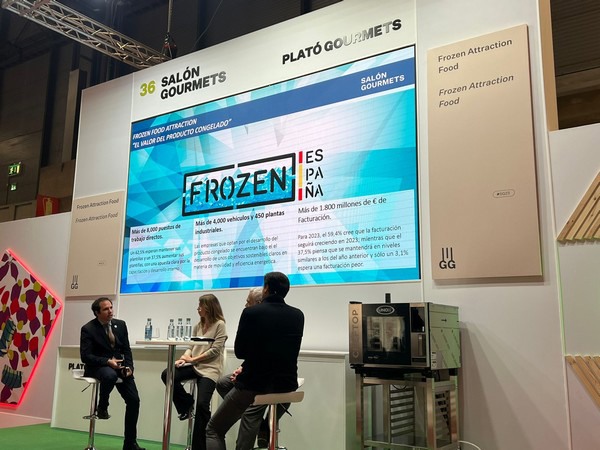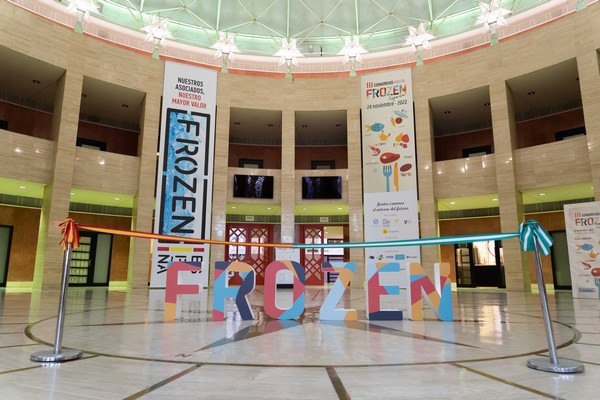In the current context of inflation and declining consumption, the frozen format is proving to be one of the least affected. And while the latest consumption data shared by the Ministry of Agriculture, Fisheries and Food -corresponding to October 2022- reveal an 8.8% year-on-year decline in consumption, with a 14% drop in the case of fresh vegetables and potatoes and of over 12% in that of fresh fruit, the decline in frozen consumption stands at only 5%, as explained by Alberto Bueno, manager of the Frozen España association.

"By freezing and deep-freezing at origin, we manage to have a supply of seasonal produce throughout the year that retains the properties and quality it had in the field, without prices having to increase. What this means is that in times of crisis or inflation, such as the current one, we have guarantees not only regarding the price, but also the quality of the product itself."
This year, in fact, due to the confluence of exceptional factors -from the energy crisis in Europe derived from the war in Ukraine to the historic drought in Spain- the market has suffered the impact of fluctuations in the supply of fresh produce (occasionally concerning), as well as in prices.

"In the frozen food industry, the rise in energy costs is what has affected us the most. Inevitably, to keep the product frozen, we need to have the freezers working 24 hours a day. Both producers and distributors are making a great effort to prevent the rising energy, raw material or labor costs from being reflected in consumer prices." And industry statistics confirm that this effort has paid off and that the consumer has continued to bet strongly on this format.
A recent survey conducted by the Spanish Vegetable Producers Association (ASEVEC), whose members are also an integral part of Frozen España, revealed that 60% of Spaniards consume frozen vegetables at least three times a week throughout the year (89% of those surveyed), highlighting the convenience they bring.
"Among the greatest benefits for consumers is that they avoid waste, since the frozen product allows you to consume only what you need at any given time, both at home and in the hospitality industry, while limiting the production of waste."

Frozen España was born with the aim of uniting all manufacturers, distributors and retailers who work with frozen products, helping the sector become more competitive, creating jobs by strengthening the economy, and advertising the properties and benefits of the freezing process. At this time, vegetables lead the segment, but remarkable growth is expected in the frozen fruit industry.
"In fact, in the most recent fairs, many people have been showing interest in fruits, especially many international operators who are looking for Spanish frozen fruit. We foresee that, contrary to what we've seen so far, with the poorest quality products being used for freezing, we are going to see more first class products being frozen," says Alberto. "The industry is realizing that freezing the first class product helps it retain its quality and properties, which should also lead to greater profits and to the supply of quality products being extended."
 For more information:
For more information:
Frozen España
Av. San Francisco Javier 9, Planta semisótano,
local 8. 41018 Seville, Spain
Tel.: +34 655 26 71 18
[email protected]
http://frozenespana.com
